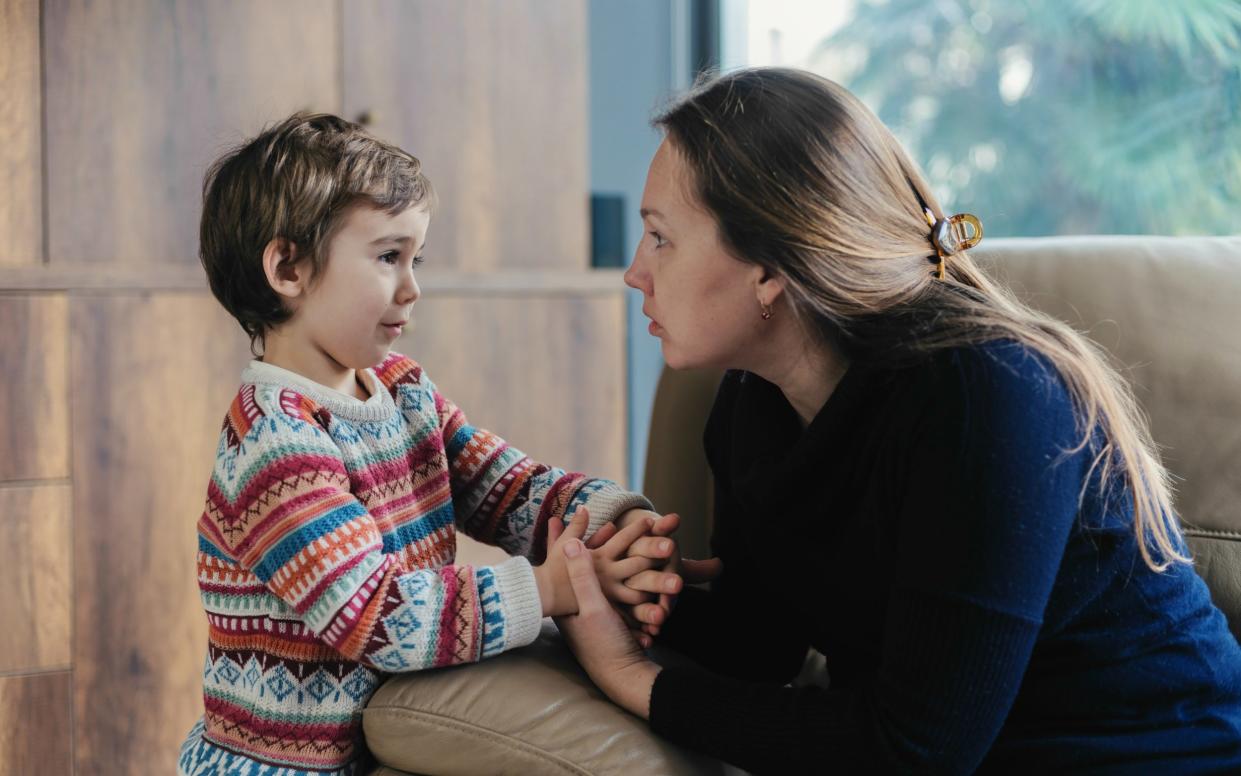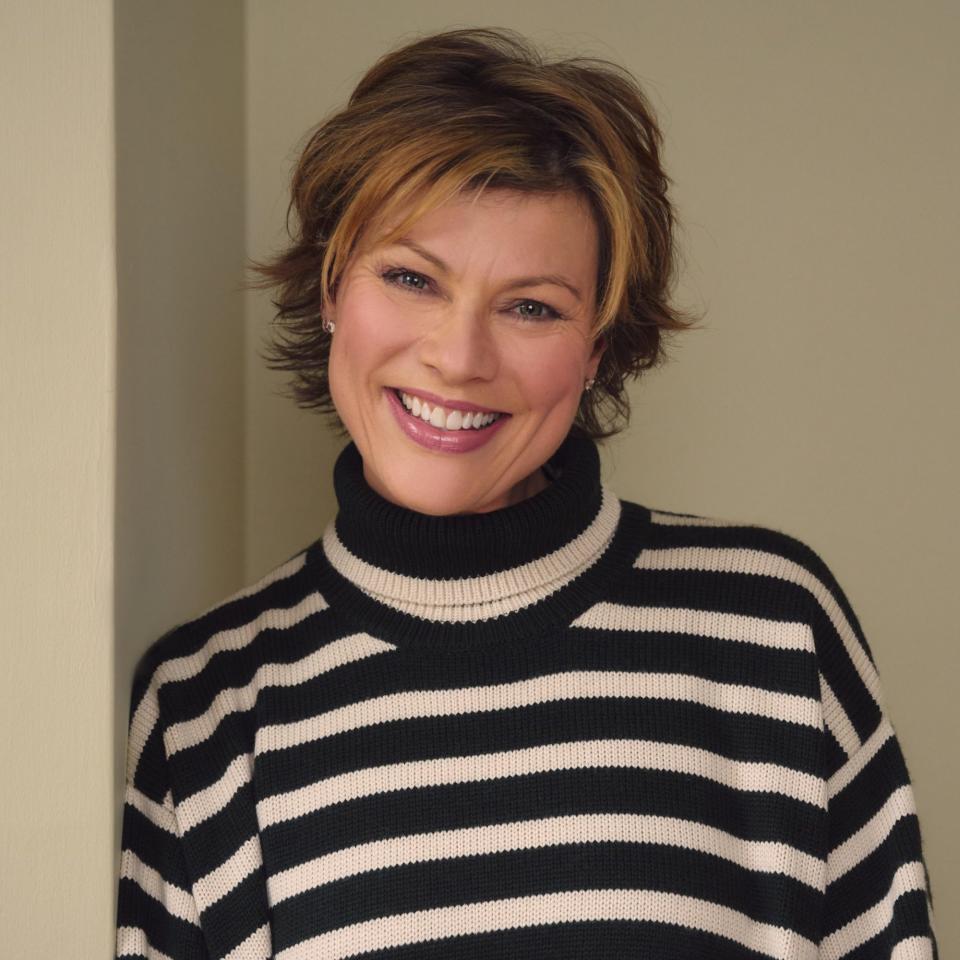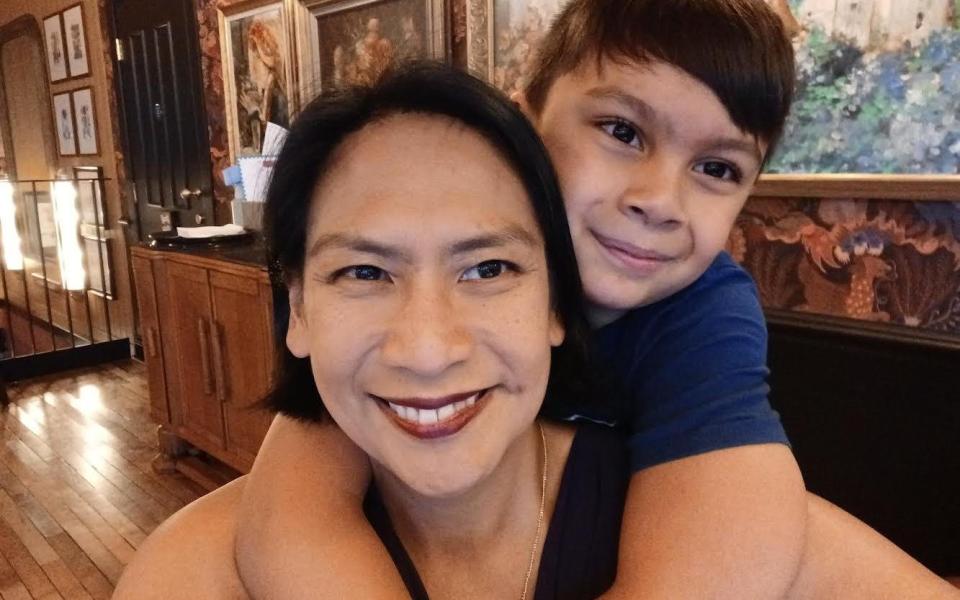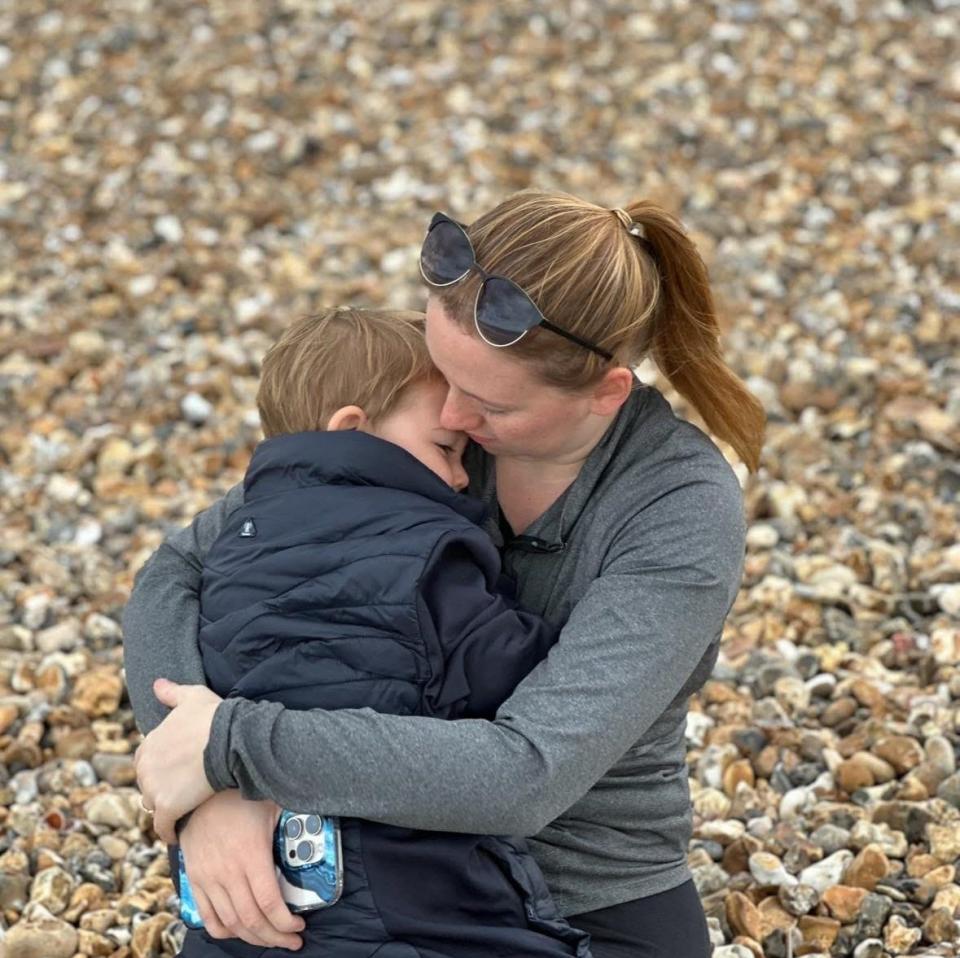Don’t want to smack your children? Here’s what the experts say to do instead

- Oops!Something went wrong.Please try again later.
With a new NSPCC poll revealing that 71 per cent of English adults believe that smacking children is unacceptable, and a recent report from the Royal College of Paediatrics and Child Health warning that smacking should be banned outright in England and Northern Ireland, the perils of over-discipline have had many parents rethinking their own strategies.
“Harsh, explosive parenting does little to serve our children,” says Kate Silverton, the newsreader turned children’s counsellor and therapist and author of parenting books, including There’s No Such Thing As ‘Naughty’. “One of the greatest gifts we can give our children is in working on our own stress management, and how to better regulate our own emotions, because then we can help our children to work on theirs,” she says.
Here are five of the most common parenting tribes along the ‘discipline spectrum’ – and what the experts make of them.
The light smacker
The parent says:
“Smacking is a nasty, brutish and ineffective method of discipline, but I can’t deny I’ve been guilty of it,” says journalist Lucy Denyer, whose boys are 13, 10 and seven. “I haven’t smacked my children for ages, but when they were little I doled out the odd slap on the wrist when, for example, they ran out into the road or when they were being particularly tricksome.” She’d warn them of what was to come if their bad behaviour persisted, “but that doesn’t make it any better really – mostly the smacking made me feel, extremely briefly, better and then almost immediately much, much worse. But it’s a fairly self-defeating practice: it just means they’re more likely to hit each other too.”
The expert says:
“What does smacking teach a child? It teaches our children that it is OK to hit, and that the people they love the most will also hurt them,” Silverton says. “These are not healthy lessons and they break trust in the relationship. I understand that stressed parents, when pushed to their limits, may lose their rag and see a ‘gentle slap’ as a way to set limits,” she adds.
“But using physical force against a child is an indication that we have become emotionally dysregulated, which means we are not modelling the behaviour we want to see in our children.”
If your child is acting out, she advises de-escalating the situation via the SAS method:
S – Say what you see, or sense, your child is feeling. For example: “Wow, sweetheart, I can see you are really upset!”
A – Acknowledge: “You have some really big feelings going on there.”
S – Soothe: “Come, Mummy/Daddy can help.”
Using this framework takes time and patience, but “will serve you and your child, and your relationship, ultimately seeing your children come to you to tell you when they are cross, or upset, rather than using their fists, feet or shouting,” Silverton says.

The driver
The parent says:
Fiona Chow, who runs a communications agency, “grew up in a typical Asian household which prioritised academic excellence and brooked very little dissent”. But while she resolved to be different with her own child, and had “visions of being the floaty, hippy, laid-back Mother Earth figure, it’s just not me.” Chow says routine and structure is critical, keeping 10-year-old Max on a two-week routine that details every activity (including tutoring, Sea Cadets and lacrosse), who’s collecting him, and what he needs to bring. “This is ostensibly to help him to take responsibility himself. I’m big on not supporting weaponised incompetence and constantly push him on this as he gets older,” she says.

Good test results yield “a reward” like a sleepover, Chow adds – and she hopes her parenting style will ensure more successes to come. “If he enjoys Sea Cadets, gets an academic scholarship, the Marines pay for a medical degree, he does four years in service and collects a few medals, gets a high-flying job and then gives me a couple of grandkids I will have reached Asian mum Valhalla and I can die in my sleep.”
The expert says:
Over-organising a child’s life with activities is the opposite of free play, “which is considered the absolute most important thing a child can engage in – it’s been an educational theory in Denmark since 1871,” explains Jessica Joelle Alexander, co-author of The Danish Way of Parenting. “Free play teaches skills you can not measure with a grade or a test score. It teaches empathy, negotiation skills, social skills, resilience, self control, coping mechanisms and self esteem.”
The boundary-setter
The parent says:
Firm boundaries, no social media and limited screen time are non-negotiable in Victoria Seed’s household. That means warnings such as: “If I ask you to come off the Nintendo and you do not, I will be unable to allow you to play on it tomorrow”; or, “It makes me feel sad when you don’t put your shoes on when I’ve asked several times. What I need is for you to put them on or we will be very late for school. Every decision has a consequence,” the safeguarding professional says.
The expert says:
Boundaries are vital for children – but Silverton warns against punishments that enforce isolation, such as the naughty step or being sent to their bedroom, which can lead children to “grow up internalising the message that being alone is a “bad thing”. When a child is sent to their room with their “too big feelings” it doesn’t help them to regulate their emotions. They are likely to either rant, rage and rebel, or they can sit quietly, swallowing and suppressing these all important emotions.” Instead, Silverton advises staying with your child “and working through their big emotions together, which ultimately serves to reduce big outbursts in the future and forms a more powerful ‘glue’ in our relationship”.
Alexander adds that for parents who raise their voices to get their way, “you may have won temporarily through yelling and threats, [but] you have lost in the long run”. There is a difference, she says, between firmness and fear: the latter means the child won’t always know why they shouldn’t do something, but do as they’re told simply to avoid being shouted at. “A strong sense of self comes from questioning and understanding why rules exist and then learning to value them. Being afraid of something called a rule is very different.”
The colleague
The parent says:
For his boys, aged one and three, army officer Ed van der Lande’s method is to be “consistent but also have fun and respect our children’s decisions. So we let them pick what they want to wear for the day but would insist they help with getting changed”; they can play with whatever they want – within reason – “but must always help tidy up. When it comes to food we get them involved in the kitchen and they can choose what they’d like to eat sometimes”, though he admits that “none of this is foolproof”.

The expert says:
Involving the whole family in making decisions as a team is more akin to the Danish way of parenting, says Alexander. “Little kids naturally like to be involved and help their parents (it’s actually similar to play for them) so if we change our mindset as parents and involve them rather than think that ‘chores’ are separate from ‘play’ we would have a lot more time to hygge [feel content] with our kids, and it naturally creates helpers for life.” This style also “lowers power struggles,” she says. “The more the framework is clear in the day-to-day, the more you can be flexible within it.”
The gentle parenter
The parent says:
Advocates of gentle parenting eschew rules and raised voices, opting instead to let their children lead the way. It was the style that made the most sense to Rachel Coles, who runs a marketing agency, “due to my parents being very angry and always shouting. I didn’t want my son to grow up around that.” If two-and-a-half-year-old Dougie throws a tantrum, “we always ask him to explain what he’s feeling and then establish why he might be feeling that way. Instead of getting angry with him when he’s having a strop, we always attempt – although hard at 1am – to approach everything in a more calm manner.”

The expert says:
“There is a difference between gentle parenting and permissive parenting, which is where it goes wrong for many,” according to Alexander. In Denmark, “parents are seen as a sort of lighthouse. The respect they give and get comes from sending out clear and consistent signals.”
In the push to be “respectful” of our children, some gentle parenters’ leadership signals “can get shaky and weak,” she explains. “We question ourselves because we want to be nice, but children know what they want, not what they need. If they always get what they want, they won’t get what they need.”

